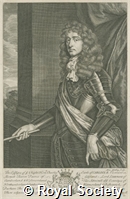| Authorised form of name | Howard; Charles (1629 - 1685); 1st Earl of Carlisle; army officer and politician |
| Dates | 1629 - 1685 |
| Nationality | British |
| Date of birth | 4 February 1628 |
| Place of death | Henderskelfe House [present site Castle Howard], Bulmer, North Yorkshire, England, Europe |
| Date of death | 24 February 1685 |
| DatesAndPlaces | Burial:
York Minster, Yorkshire, England, Europe (12 March 1685) |
| Occupation | Soldier; Politician; Government official; Diplomat; Colonial governor |
| Activity | Career:
Charged with bearing arms for King Charles I during the English Civil War, and fined (1646); travelled in Holland (1646-1647); High Sheriff of Cumberland (1650); Governor of Carlisle (1650-1660, 1678-1685; fought on the Parliamentary side at the Battle of Worcester, with the rank of Captain, and wounded (1651); MP for Westmoreland (1653), Cumberland (1654, 1656, 1660); Member of the Council of State (1653, 1655-1658); Captain of the Lord Protector's Bodyguard (1654); Colonel of a regiment of horse (1655, 1660); Councillor of State for Scotland (1655); Deputy Major-General of Cumberland, Northumberland and Westmoreland (1655); created Lord Gilsland and Viscount Howard of Morpeth by Oliver Cromwell (1657); imprisoned, paroled, and re-arrested to the Tower of London, for high treason, but released (1659); Privy Councillor (1660); Custos Rotulorum for Essex (1660); Lord Lieutenant of Cumberland and Westmoreland (1660)
|
| Membership category | Fellow |
| Date of election | 14/06/1665 |
| Age at election | 36 |
| Proposer | Sir Paul Neile |
| Date of ejection or withdrawal | 9 August 1682 |
| RSActivity | Ejected due to non-payment of subscriptions 9 August 1682. |
| Relationships | Parents: Sir William Howard and Mary Evers
Married: Anne Howard
Children: six, including Edward Howard, 2nd Earl of Carlisle |
| OtherInfo | Howard was barely active in the Society's work and did not contribute to meetings or activities. In parliament, he was appointed to a variety of committees as well as governor of Jamaica at an annual salary of £2,500.
Charles Howard was a member of the The Royal Adventurers into Africa, later Royal African Company (RAC), from 1661-1672.
The RAC was a British trading company established by Royal Charter in 1660 which enslaved and sold African people. The company was chartered by Charles II, the founding royal Patron of the Royal Society, which was also chartered in 1660. The RAC was made up of and funded by members of the Stuart royal family and London merchants many of whom were, or went on to become, Fellows of the Royal Society. The Royal Society itself held shares in the company until 1699. |
| Related images | Discover a selection of related images in our picture library |
| Image | 
|
| Source | Sources:
Bulloch's Roll; ODNB; GEC; Hunter; Henning
References:
H. Cary (ed.), 'Memorials of the great civil war in England from 1646 to 1652...' (London, 1842)
Frank Cundall, 'The governors of Jamaica in the seventeenth century' (London, 1936)
B. D. Henning (ed.), 'The history of Parliament: the House of Commons 1660-1690' (London, 1983)
Mark Govier, 'The Royal Society, Slavery and the Island of Jamaica: 1660-1700' in NR 1999 vol 53 pp 203-217
Christopher Durston, 'Cromwell's Major-Generals: godly government during the English Revolution' (Manchester UP, 2001)
Steve Murdoch and Alexia Grosjean, SSNE Database, individual entry SSNE 1877 [records of British and Irish activity in Scandinavia and the Baltic States], Institute of Historical Research, University of St. Andrews (1995-2021). |
| Virtual International Authority File | http://viaf.org/viaf/317274788 |
| Code | NA8424 |